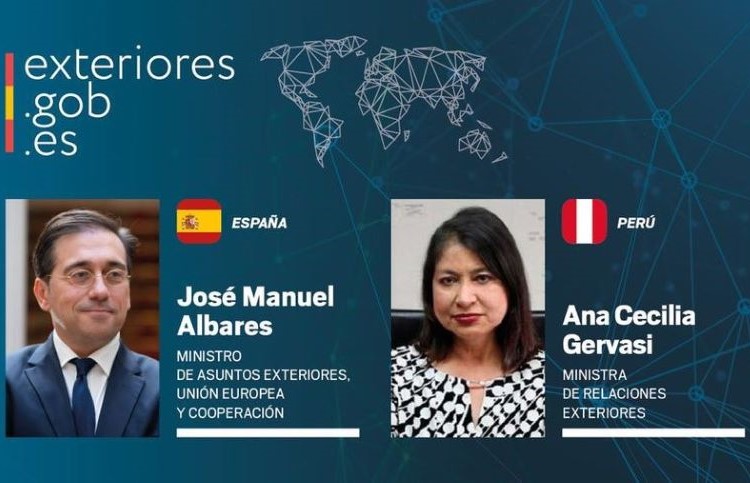The Diplomat
Digitalization and adaptation to the new technological scenario were the main topics of the Annual Meeting of Directors of the Instituto Cervantes, which was inaugurated last Monday by Queen Letizia and concluded this past Wednesday in Granada.
Over the course of three days of work, the management team of the Instituto Cervantes in Spain and the directors of 61 centers discussed the challenges facing the institution and strategies for the international dissemination of the Spanish language and the culture of Spanish-speaking countries. Among the main topics discussed were the institution’s academic activity, the dissemination of culture in Spanish, the marketing of online courses – booming in the wake of the pandemic and confinement – and, especially, the Digitalization Plan, which includes multiple digital transformation projects with the help of European funds.
During the last and third day, held in the Plenary Hall of the Granada City Hall, the Minister of Foreign Affairs, José Manuel Albares, addressed the attendees in a recorded video in which he warned of “the need to optimize the potential of Spanish” by taking advantage of the technological revolution and artificial intelligence, whose use “opens up a whole horizon of possibilities.” “Digital reality has definitely settled among us,” he added.
“We are at a moment of transcendental historical change” in which “Spanish can and must become an engine for generating employment, entrepreneurship, technology and economic growth,” continued Albares, “The enormous effort of adaptation to the virtual environment undertaken prepares us to face new challenges” and “will provide us with a solid foundation to take advantage of all the opportunities of the virtual,” warned the minister, who highlighted the importance of the PERTE New Language Economy of language, whose key strategic piece will be the Global Observatory, based in La Rioja.
Albares also stressed that the Instituto Cervantes “has managed to become our best tool for promoting the teaching, study and use of Spanish, contributing to the expansion of Hispanic cultures abroad. This year 2022, he recalled, has been the year of the recovery of classroom activity, the return to normality and the reactivation of the examination work for obtaining Spanish diplomas. It has also been “the year of expansion”, with the consolidation of the centers in Dakar (Senegal), the inauguration of Los Angeles (United States) and the approval of Seoul (Republic of Korea).
For his part, the director of Cervantes, Luis García Montero, insisted throughout the meeting on the advisability of modernizing the organization and thinking of new projects to face the future. “Our heart remains in Granada”, his hometown, he concluded during the closing ceremony of the meeting. Likewise, the secretary general, Carmen Noguero, predicted that the digital transformation “will lead us to much reflection” and is embodied in an ambitious strategic plan for digitization.
After the concluding session, the singer Miguel Ríos presented Luis García Montero, in the Isabel la Católica Theater, with a bequest for the Caja de las Letras del Cervantes, which the director of the Institute himself will deposit in the vault at the headquarters. The artist from Granada also gave the concert Vuelvo a Granada, accompanied by the Black Betty Band, Antonio Arias and Anni B Sweet.
The Cervantes Directors’ Meeting was organized with the collaboration of the University of Granada, the City of Granada, the City of Fuente Vaqueros and Renfe (official train of the Annual Meeting). This is the third time that an Annual Meeting of Directors is held in Andalusia, after those developed in Cordoba (in 2007) and Malaga (2017). This type of periodic meetings have taken place every year since 2005 (except in 2020 because of the pandemic) in various cities in a total of ten autonomous communities: Andalusia, Castilla y León, Castilla-La Mancha, Madrid, Cantabria, Extremadura, La Rioja, Galicia, the Basque Country and the Valencian Community.







